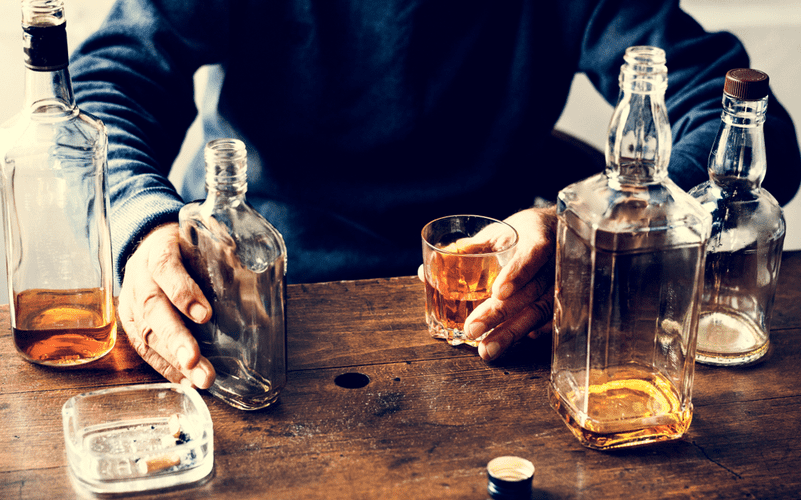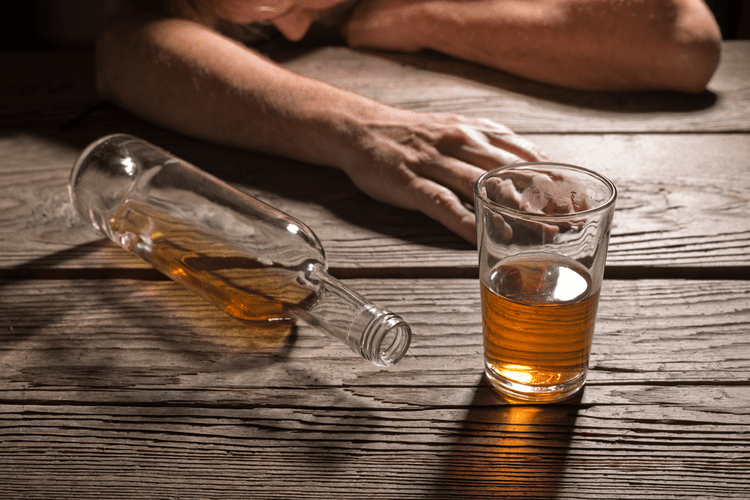You may need to seek treatment at an inpatient facility if your addiction to alcohol is severe. These facilities will provide you with 24-hour care as you withdraw from alcohol and recover from your addiction. Once you’re well enough to leave, you’ll need to continue to receive treatment on an outpatient basis. While some research suggests that small amounts of alcohol may have beneficial cardiovascular effects, there is widespread agreement that heavier drinking can lead to health problems. Explore Mayo Clinic studies testing new treatments, interventions and tests as a means to prevent, detect, treat or manage this condition. Depending on your case, you can get one or more types of treatment for alcohol use disorder.
- Alcohol use disorder can be mild, moderate, or severe, depending on the number of symptoms you have.
- It is a destructive pattern of alcohol use that includes tolerance to or withdrawal from the substance, using more alcohol or using it for longer than planned, and trouble reducing its use or inability to use it in moderation.
- The study found other things also affected whether people got quality alcohol screenings.
If you drink more alcohol than that, consider cutting back or quitting. Your treatment setting will depend on your stage of recovery and the severity of your illness. You may need inpatient medical (hospital), residential rehabilitation (rehab), outpatient intensive therapy or outpatient maintenance. Furthermore, you may not recognize the signs of an alcohol use disorder in yourself or in someone else. See your doctor if you begin to engage in behaviors that are signs of alcohol use disorder or if you think that you may have a problem with alcohol. You should also consider attending a local AA meeting or participating in a self-help program such as Women for Sobriety.
Coping and support
More than 110,000 people died from drug overdose in the U.S. in 2022 according to the Centers for Disease Control and Prevention, the most in any year to that point. This increase follows a steady rise in overdose deaths in the United States that has been occurring since at least the 1980s. Fentanyl and other synthetic opioids have been the main drivers of overdose deaths since 2016. The Chief Medical Officers for the UK recommend that if you’re pregnant or planning to become pregnant, the safest approach is not to drink alcohol at all to keep the risk to your baby to a minimum.
The main goal is to avoid alcohol and find a better quality of life. An estimated 16 million people — adults and adolescents — in the U.S. have alcohol use disorder. Explore how many people ages 18 to 25 engage in alcohol misuse in the United States and the impact it has. Learn how many people ages 12 to 20 engage in underage alcohol misuse in the United States and the impact it has.
Alcohol Use Disorder Diagnosis
Another way to look at your drinking habits is to think about how much you have during an average week. For women, “heavy” or “at risk” drinking means more than seven drinks per week or more than three in any day. For men, it’s more than 14 drinks in a week or more than four in a day. Around the globe, there is http://englishtips.org/1150858135-the-one-that-i-want.html low awareness of the negative impact of alcohol consumption on health and safety. Alcohol consumption contributes to 3 million deaths each year globally as well as to the disabilities and poor health of millions of people. Overall, harmful use of alcohol is responsible for 5.1% of the global burden of disease.
- Alcohol use disorder is a pattern of alcohol use that involves problems controlling your drinking, being preoccupied with alcohol or continuing to use alcohol even when it causes problems.
- Finishing the course of antibiotic treatment prescribed for your condition is essential.
- Alcohol intoxication causes slowed speech and reflexes, difficulty in concentration and memory, and poor decision-making.
Here’s some information to help you get ready for your appointment, and what to expect from your health care provider or mental health provider. Even if your case of AUD is mild, it can have a serious effect on your physical and mental health. Often, AUD causes other problems that you try to avoid by drinking. Your doctor may ask about your drinking habits and want to talk with your family and friends. They might also do a physical exam and order lab tests to learn whether alcohol use is affecting your health.
How is alcohol use disorder treated?
The HEALthy Brain and Child Development (HBCD) study is looking at the impact of COVID-19 on maternal health and substance use, and infant development. The Adolescent Brain Cognitive DevelopmentSM (ABCD) study is investigating the impact of the COVID-19 https://pogarchik.com/oborudovanie/samogonnyy-apparat-iz-kegi.html pandemic on adolescent health and brain development, including mental health and substance use. Physical distancing and other public health measures at the onset of the pandemic disrupted access to medication and other support services for many people.
For example, 15- to 16-year-olds who use religion to cope with stress tend to use drugs significantly less often and have fewer problems as a result of drinking than their peers who do not use religion to cope. That can result in people being less inhibited in their words and actions and more likely to engage in immediately pleasurable activities even if they are unsafe. Worldwide, alcohol is thought to contribute to more than 200 illnesses and injuries, like liver disease, heart disease, and neurological problems.
Alcoholism and Alcohol Abuse
According to the Centers for Disease Control and Prevention (CDC), moderate drinking is typically defined as two drinks or fewer for men per day, or one drink https://www.russellhoyles.com/therapies/cognitive-behaviour-therapy/ or less for women. Alcohol when consumed during pregnancy, is profoundly damaging. The umbilical cord allows the mother’s blood alcohol to reach the infant.
- Methadone also should be made more widely available to treat addiction.
- NIDA continues to study the effects of the COVID-19 pandemic on substance use.
- They’ll do a physical exam and ask you questions about your drinking habits.
- But living with an awareness of our own mortality fundamentally changes what we value and how we choose to use our time.


















